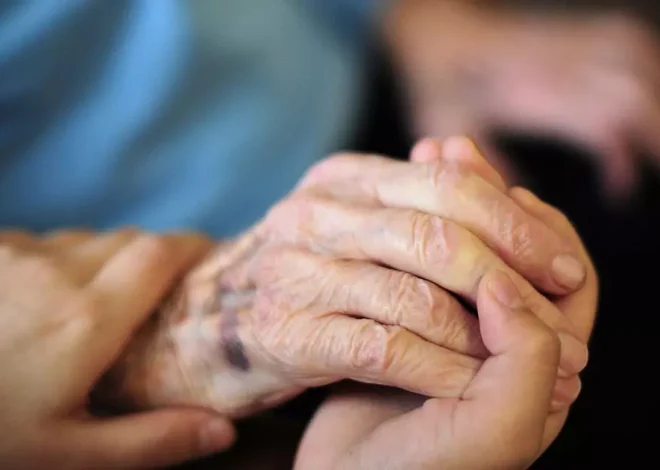
Comment on the balance sheet by Claudia Moll
Arne Evers, Director of Nursing at St. Josef Hospital Wiesbaden, comments on the assessment of the Federal Government’s Nursing Commissioner, Claudia Moll, on the state of nursing in the current legislative period.
Claudia Moll emphasizes that the federal government has created the necessary structural changes with extensive legislation – among other things to strengthen professional care. This sentence reads well, but is the statement accurate?
Collective bargaining agreement. I would like to agree with Moll’s statement that the Health Care Development Act introduced mandatory collective wage agreements for inpatient and outpatient long-term care. That was necessary and right. However, the law was passed in the 19th legislative period and came into force in July 2021. The Nursing Professions Act, which – according to Moll – laid the “foundation for sustainable and high-quality nursing training”, which is absolutely true, dates from 2020 and therefore also does not fall within the term of office of the current federal government.
Care bonus. I find Moll’s statement on the nursing bonus law under the heading “Strengthening professional nursing” shocking. Even if the nursing bonus was certainly a well-intentioned plan, the one-off payment for the nursing profession did not bring about a lasting improvement, but rather caused a lot of misunderstanding within the professional group and promoted political disillusionment. As a nursing director who had to personally explain to many of his employees, such as nursing professionals in the emergency room or nursing assistants, why they did not receive a one-off payment, I can never come to the conclusion that the nursing bonus would have strengthened professional nursing.
Nursing Studies Strengthening Act. One positive aspect is the Nursing Studies Strengthening Act, which is correct in terms of both content and expertise – even if more would probably have been possible. Nevertheless, the urgently needed funding for university nursing training is a milestone that must now be expanded further. However, for current reasons, it is important to point out contradictory state policy that is tacitly approved by the federal government: the expiring funding of the Institute for Nursing Science at Bielefeld University. Academically trained nursing professionals yes, nursing science no – that doesn’t fit together!
Project CAP. Moll praises the project “GAP – Good working conditions in nursing to reconcile family, care and career”, which was not initiated by her but by her predecessor Andreas Westerfellhaus. In principle, GAP makes a lot of sense. However, it is critical that since the original initiation there has been no further development or transfer to other settings such as hospitals – in my view, this is clearly a failure.
Hospital reform. What Moll’s report lacks is the context in which it is embedded – and there is a lot to be considered in the 20th legislative period. What the nursing representative completely ignores are the many missed opportunities for a real, sustainable strengthening of the nursing profession as part of the hospital reform. The federal government must be blamed for not having taken up all of the government commission’s suggestions to upgrade the nursing profession to date. This failure can at best be described as stagnation of nursing and certainly not as strengthening. This can be seen very clearly in the way academic nursing staff are treated: the first draft of the hospital reform still took into account and gave academic nursing independence as part of its own care in Level 1i hospitals. This progress has been continually downgraded: first independence, then dependence, now complete elimination. Although the practical implementation of the proposed Section 115h “medical and nursing care” was more than questionable, it would have been a boost for the independence of nursing staff and thus for professionalization. Nothing of this exists today.
Health kiosks. The situation is similar with health kiosks. Originally, these facilities were intended as an independent field of activity for nursing professionals; the profession of community health nurse would finally have been established. This too would have been a real milestone for nursing autonomy. Community health nursing has now been completely abolished, the law is commonly referred to as the “General Practitioner Pacification Act”, and there is no longer any appreciation of nursing here either.
Professional self-administration. What I also miss in Moll’s report are statements on the subject of self-administration. According to the coalition agreement, there should have been significant progress here, but so far hardly anything has happened. In Baden-Württemberg, the attitude and handling of the state politicians towards the agreed state nursing chamber is very questionable. After the back and forth of the past few months, it is still not clear today whether the quorum for the establishment of the chamber has been reached or not. This is also part of the classification and cannot be missing from an interim conclusion.
Clinical Atlas. Finally, reference should be made to the Federal Ministry of Health’s hospital atlas and the depiction of the nursing staff ratio, which is causing massive irritation: a speedometer for differentiating between “good and bad nursing staff levels” that treats the entire hospital with the same brush cannot be a strengthening factor for patients or for the nursing staff working there. Anyone who depicts the nursing staff levels of a children’s hospital, a geriatrics ward, a general surgery ward and a bone marrow transplant ward all at once has simply ignored the nuanced nature of the depiction of nursing performance.
What else can we expect in this legislative session?
The federal government still has major legislative projects on its agenda. These include the Nursing Competence Act in two parts and the generalist, nationwide nursing assistant training. There is not much time left until the next federal election. In this respect, it is to be feared that the reform of nursing assistant training will be rushed through, like the two planned parts of the Nursing Competence Act, or will not survive the upcoming professional debate unscathed. This could mean that key aspects of upgrading the nursing profession could be deleted or watered down. I am more than excited about the announced progressiveness of the Nursing Competence Act in comparison with the key points already published, and I am eagerly awaiting the resulting debate with other health care providers.
Overall, it can be said that what has been achieved in this legislative period in terms of strengthening the nursing profession can be described as meager. Many opportunities have been missed. The end of Moll’s report also fits in with this – the call to rethink nursing and shape it together. This almost reads like an attribution of blame for the fact that the nursing profession is not currently participating. For me and many other colleagues, the following applies: We want to! Then let us too.

Ethel Purdy – Medical Blogger & Pharmacist
Bridging the world of wellness and science, Ethel Purdy is a professional voice in healthcare with a passion for sharing knowledge. At 36, she stands at the confluence of medical expertise and the written word, holding a pharmacy degree acquired under the rigorous education systems of Germany and Estonia.
Her pursuit of medicine was fueled by a desire to understand the intricacies of human health and to contribute to the community’s understanding of it. Transitioning seamlessly into the realm of blogging, Ethel has found a platform to demystify complex medical concepts for the everyday reader.
Ethel’s commitment to the world of medicine extends beyond her professional life into a personal commitment to health and wellness. Her hobbies reflect this dedication, often involving research on the latest medical advances, participating in wellness communities, and exploring the vast and varied dimensions of health.
Join Ethel as she distills her pharmaceutical knowledge into accessible wisdom, fostering an environment where science meets lifestyle and everyone is invited to learn. Whether you’re looking for insights into the latest health trends or trustworthy medical advice, Ethel’s blog is your gateway to the nexus of healthcare and daily living.



